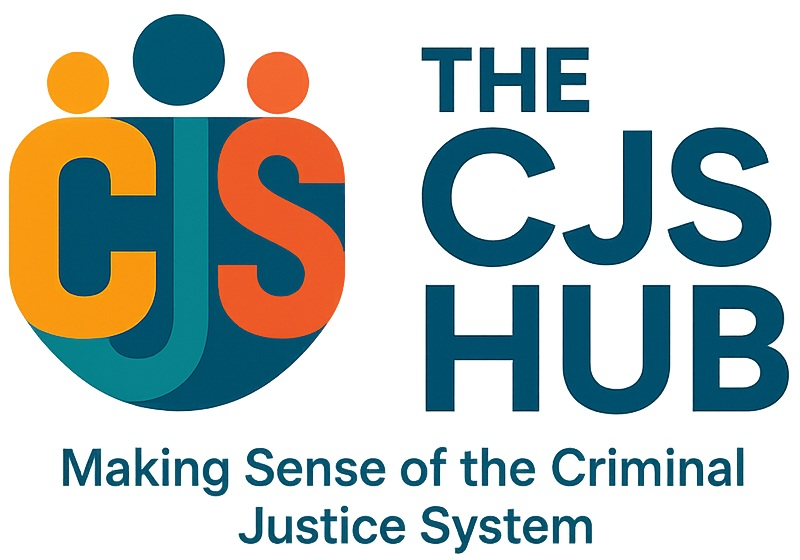Why Sentencing Happens
If you plead guilty or are found guilty after trial, the court has to decide what happens next. Sentencing isn’t just about punishment — it also aims to protect the public, rehabilitate offenders, and deter future offending.
Sentences can feel complex, but in most cases, they fall into one of a few main categories. Knowing the basics can make things clearer for you and your family.
Discharge — No Punishment, But Still a Record
Absolute Discharge:
- The court decides no punishment is needed.
- Rare, but can happen for very minor offences or where blame is minimal.
Conditional Discharge:
- No immediate punishment if you stay out of trouble for a set period (up to 3 years).
- If you commit another offence during that time, you can be sentenced for both.
Fines
- Fines are common for minor offences, especially in Magistrates’ Court.
- The amount depends on the seriousness of the offence and your ability to pay.
- The court can set payment plans if you can’t afford the full amount up front.
- Not paying fines can lead to enforcement action — even prison in extreme cases.
Community Orders
Community orders are designed to punish but also rehabilitate. The court can impose one or more “requirements,” such as:
- Unpaid Work (Community Service) — typically 40 to 300 hours, supervised.
- Rehabilitation Activity Requirements (RARs) — meetings, courses, or therapy aimed at addressing offending behaviour.
- Curfews / Electronic Tags — you may have to stay at home during certain hours.
- Exclusion Zones — banning you from certain places.
- Drug or Alcohol Treatment — compulsory testing or programmes if relevant.
Failing to comply can lead to harsher penalties, including custody.
Suspended Sentences
This is where the court imposes a prison sentence but “suspends” it for a set period (up to 2 years).
- You don’t go to prison straight away, but you must comply with conditions (like attending appointments, doing unpaid work, or following curfews).
- If you commit another offence or breach the order, the sentence can be “activated” — meaning you serve the original prison time plus anything for the new offence.
- A suspended sentence is still a criminal conviction and will show on a DBS check.
Immediate Custody (Prison Sentences)
If the court decides your offence is so serious that only prison is appropriate, you’ll be sentenced to custody.
How it works in England & Wales:
- Sentence length: Depends on the seriousness of the offence and your previous record.
- Automatic release:
- Sentences under 12 months → Usually serve half in prison, the rest on licence in the community.
- Sentences 12 months or longer → Usually serve half to two-thirds in custody, depending on offence type.
- Extended sentences → For some violent or sexual offences, you may serve more in prison before release.
- Life sentences & IPPs: Special rules apply, and parole decisions are involved.
Even after release, you’ll normally remain on licence — meaning probation supervises you and you must follow strict rules.
Young People (Under 18)
Sentences for young people are different and aim more at rehabilitation. Options include:
- Referral Orders — meeting with a youth offender panel to agree on a rehabilitation plan.
- Youth Rehabilitation Orders (YROs) — the youth equivalent of community orders, with tailored conditions.
- Detention & Training Orders (DTOs) — a mix of custody and supervised release.
Victim Surcharges, Costs & Compensation
Whatever sentence you receive, the court may also order:
- A Victim Surcharge — a set amount based on your sentence, used to fund victim services.
- Prosecution Costs — contributing towards the CPS’s costs.
- Compensation Orders — paying money directly to victims.
These are in addition to any fines or other penalties.
How Courts Decide: Sentencing Guidelines
Judges and magistrates follow official Sentencing Council guidelines. They look at:
- The seriousness of the offence.
- Any aggravating factors (weapons, repeat offending, targeting vulnerable victims).
- Any mitigating factors (genuine remorse, previous good character, mental health issues).
- Whether you pleaded guilty early.
Every case is different, but these rules keep sentences broadly consistent across England and Wales.
Practical Tips for Defendants & Families
- Ask your solicitor to explain likely sentencing ranges before trial or plea.
- If you’re worried about custody, ask about pre-sentence reports — these can influence whether you get community-based options.
- Make arrangements for children, pets, bills, and work before sentencing day if there’s a chance of custody.
- If you get a community or suspended sentence, stick to the conditions — breaching them makes things much worse.
